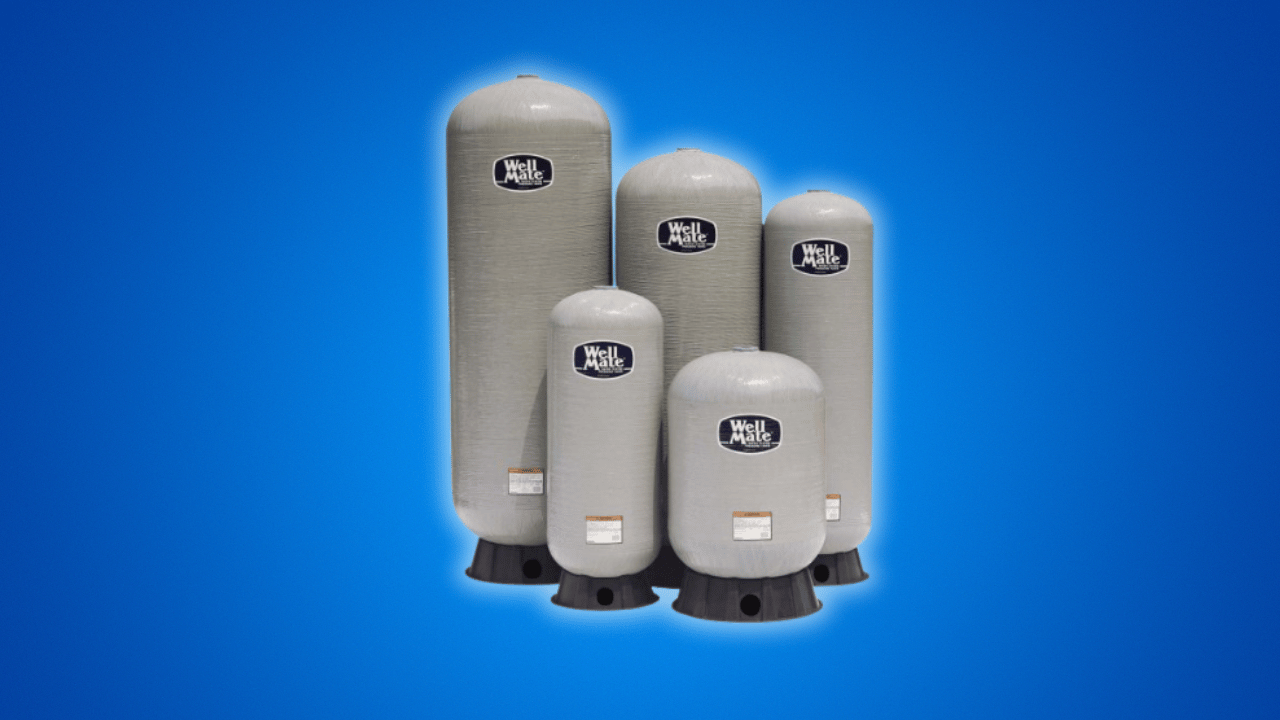Unlock Superior Water Quality with Retention Tanks in San Antonio Texas
Enjoy the transformative power of well water softener systems with the addition of retention tanks! These tanks are specifically designed to enhance the effectiveness of your water treatment process by allowing extended contact time with treatment chemicals. Don’t compromise on your water quality, embrace retention tanks, the secret to a healthier, cleaner, and better-tasting water supply.
We use durable retention tanks sized to provide optimum contact time during chemical treatment. Light weight totally non-corrosive durable, seamless one piece inner shell of NSF listed polyethylene.
Retention Tanks in Well Water Softener System
Imagine waking up to a day where your well water softener system isn’t functioning as expected. It’s causing your taps to flow with hard, impure water. The culprit? The unsung hero of the system – the Retention Tank. You see, without it, your well water softener system is just a shell, struggling to fulfill its duty. The Retention Tank is critical, and understanding its role could help you ensure that your water softener system is always at the top of its game, providing you with soft, clean water.
The Retention Tank is the heart of the well water softener system. It holds the water long enough for the water softener to do its job, removing the minerals that cause water hardness. It’s not just a storage unit, but a fundamental component that ensures the efficiency of the entire system. Investing your time to familiarize yourself with the operation and maintenance of a Retention Tank will go a long way in enhancing your well water softener system’s lifespan and performance.
Understanding the Functionality and Importance of Retention Tanks in Well Water Softener Systems

You may have encountered the term “well water softener system,” but how often have you given thought to one of its key components, the retention tank? This integral part of the water softening system plays a pivotal role in ensuring you have a steady supply of clean, non-hard water in your home. Understanding the functionality and importance of retention tanks in well water softener systems can help you appreciate the value it brings to your water infrastructure.
Definition
Firstly, let’s debunk what exactly a retention tank is. A retention tank, as the name suggests, is a tank used to retain water. But it’s not just about storage. It’s a specially engineered part of a water treatment system that holds water long enough to allow treatment processes to effectively take place.
Provide Time
The primary function of a retention tank in a water softener system is to provide sufficient time for the water softener to properly treat the water. It allows the softening agents to fully interact with the minerals causing hardness in the water. This process needs a minimum amount of time to be effective, and the retention tank provides exactly that. So, without a retention tank, the water softener system would not have enough time to transform hard water into soft water, and the system would be ineffective.
Handling excess water flow
Moreover, the retention tank has another crucial role in well water softening systems: handling excess water flow. Sudden or unexpected surges in water demand can overwhelm a water softening system. A retention tank acts as a buffer, storing excess water and ensuring a steady, even flow of soft water, regardless of the amount needed at any given time.
Longevity and Efficiency
Now, why is understanding the functionality and importance of retention tanks essential? Simply put, it helps you ensure the longevity and efficiency of your water softener system. Recognizing the importance of a retention tank means you’ll be more likely to maintain it properly, which can extend the system’s lifespan and keep it running optimically.
Despite their importance, retention tanks are relatively low-maintenance components of the system. However, they do need periodic checks to ensure they are in good working order. Over time, they may need to be cleaned or even replaced to maintain the system’s overall efficiency.
In conclusion, the retention tank is an indispensable part of the well water softener system. It ensures the water softening process is effective by providing enough time for the softening to occur and helps manage water flow to maintain a steady supply of soft water. Understanding its functions and importance is key to maintaining a well-operated and effective well water softener system.
Take Control of Your Water Softening System with Retention Tanks in San Antonio Texas
The secret to a high performing water softener system? It’s the salt you use! With the right, high-quality salt, your water softener will work more efficiently and last longer. So give your water softener the treat it deserves, and you’ll enjoy the benefits of pure, soft water like never before.
Choosing the Right Retention Tank for Your Well Water Softener System: Key Considerations and Recommendations

When it comes to ensuring the longevity of your well water softener system, one critical component that requires your careful attention is the retention tank. Choosing the right retention tank is not just a matter of buying the first or cheapest option you encounter. It’s an investment in the efficiency of your water softener system and the quality of your water supply. This article will guide you through key considerations and provide recommendations on choosing the right retention tank.
System’s Requirements
Firstly, it’s important to understand your system’s requirements. Not all well water softener systems are created equal. The size of your system, its specific design, and your water usage patterns significantly influence the type and size of the retention tank you require. So dig out your system’s manual and get familiar with the specifications.
Size
Secondly, consider the tank’s size. A retention tank’s primary function is to hold water for a sufficient period, allowing the water softening process to occur effectively. If your tank is too small, the water might not be in the tank long enough for the softening process to complete, resulting in hard water. On the other hand, a tank that’s too large can lead to water stagnation. Analyze your water usage and buy a tank that can comfortably accommodate it.
Material
Next, think about the tank’s material. Generally, retention tanks are made from either fiberglass or polyethylene. Fiberglass tanks are durable, lightweight, and resistant to corrosion. They are, however, more expensive. Polyethylene tanks, on the other hand, are less expensive and still offer good durability and resistance to chemical reactions. Consider your budget and the long-term durability when deciding which material to choose.
Drain System
The tank’s drain system is another critical factor to consider. The drain system should be able to empty the tank completely, leaving no residual water. A poor draining system can lead to water stagnation and bacterial growth. Hence, ensure that the drain is adequately sized and properly positioned.
Installation and Maintenance
Lastly, consider the installation and maintenance of the tank. Some tanks are more complex to install than others and may require professional help. In addition, all tanks need regular maintenance to function optimally. Consider whether you’re prepared to perform this maintenance, or if you’d prefer a tank that includes a maintenance service.
In conclusion, choosing the right retention tank for your well water softener system is crucial for the system’s efficiency and the quality of your water. Take time to understand your system requirements, analyze your water usage, and consider the material, drain system, and maintenance needs of potential tanks. Doing so will ensure that you make an informed decision that meets your specific needs and guarantees long-term satisfaction.
Now that you’ve delved into the essentials of Retention Tanks in well water softener systems, you’re no longer an uninformed user. You’ve taken a peek behind the curtain, understanding the significant role these unassuming tanks play. Now, you can monitor any changes in your water quality and better diagnose if the problem lies with the Retention Tank.
Remember, a well-functioning Retention Tank equals a healthy well water softener system. Ensure regular checks, timely maintenance, and necessary replacements for seamless operation. Your well water softener system is more than just a machine; it’s your key to a healthy lifestyle, and the Retention Tank is a vital part of this cogwheel. So, embrace the knowledge you’ve gained, be proactive, and ensure the smooth functioning of your Retention Tank, and consequently, your well water softener system.
Elevate Your Well Water Experience with Retention Tanks – Request a Free Estimate Today
Please use the form below to request a free estimate and we’ll be back in touch with you as soon as possible. Alternatively you can give us a call at (210) 960-2555 for immediate Pricing and scheduling.


